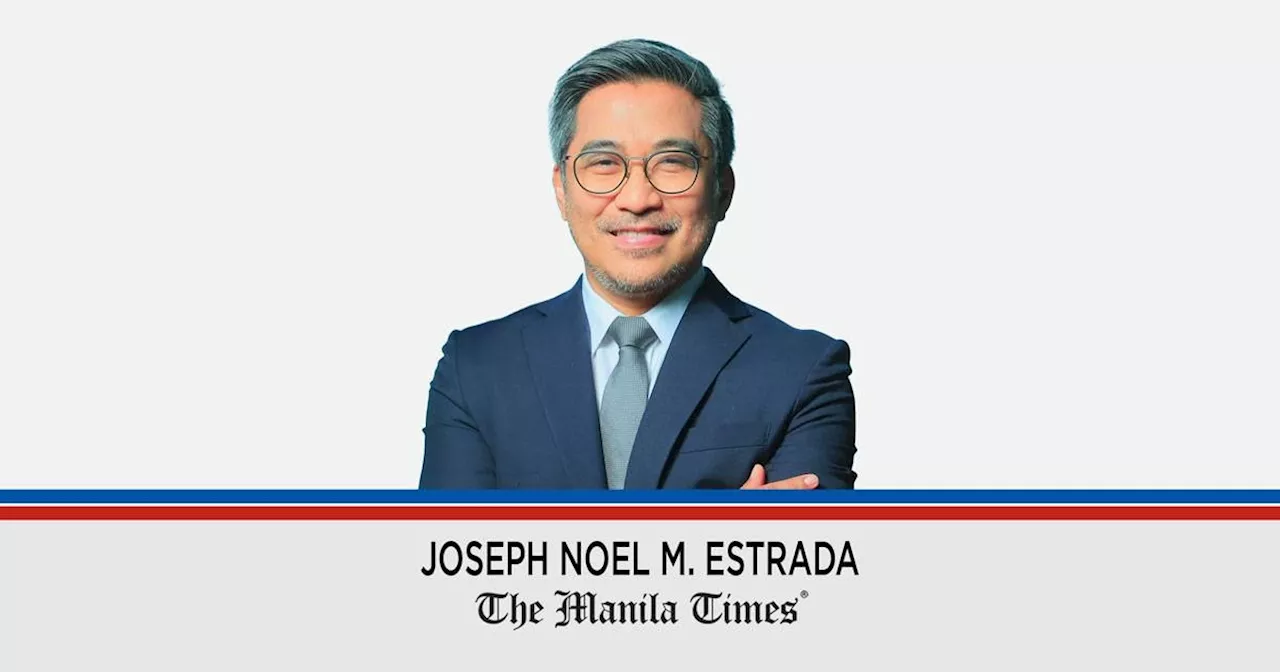This article explores the delicate balance between a teacher's professional ethics and their civic rights in the context of political discourse. It examines the Code of Ethics for Professional Teachers, which prohibits partisan promotion and solicitation, while also acknowledging the importance of instilling civic values in the classroom. The article clarifies permissible and prohibited political activities for teachers, emphasizing the distinction between civic education and electioneering.
The Code of Ethics for Professional Teachers prohibits them from promoting any political, religious, or other partisan interest and from soliciting or receiving any money or valuable items for such purposes. However, it is important to balance this with the constitutional mandate of educational institutions to instill patriotism, nationalism, and citizenship values, as well as ethical and spiritual values, moral character, personal discipline, and critical thinking.
Teachers are essential to fulfilling this mandate. Therefore, incorporating these matters into lessons should not be considered unethical or unprofessional, even during election or campaign periods.Teachers, as agents of constructive change, have a responsibility to participate in the social, economic, moral, intellectual, cultural, and political development of their school and community, aligning their efforts with national policies as mandated by Batas Pambansa 232 or the Education Act of 1982.Teachers, like all citizens, retain their constitutional right to freedom of speech and expression and do not lose these rights when they enter the schoolhouse gate. They have the right to express their opinions and suggestions freely and to communicate effectively with the relevant academic and administrative bodies of the school or institution. Their fundamental rights as individuals are not relinquished because they are teachers. Therefore, without campaigning or soliciting votes, teachers can educate students about discernment in choosing leaders, voter education, and the values and qualities of good leadership.On the other hand, the Code of Ethics also bars a teacher from using his or her position or official authority or influence to coerce any other person to follow any political action. Public school teachers are prohibited from engaging in election campaigns and partisan political activity. Election campaign or partisan political activity is defined by the Commission on Election as any act designed to promote the election or defeat of a particular candidate or party to public office, which includes — forming organizations, associations, clubs, committees, or other groups of persons for the purpose of soliciting votes and undertaking any campaign for or against a candidate or party; holding political caucuses, conferences, meetings, rallies, parades, or other similar assemblies for the purpose of soliciting votes and undertaking any campaign for or against a candidate or party; making speeches, announcements, or commentaries, or holding interviews for or against the election of any candidate or party for public office; publishing, displaying, or distributing campaign literature, or materials designed to support or oppose the election of any candidate or party; directly or indirectly soliciting votes, pledges, or support for or against any candidate or party.The Civil Service Commission, in addition, prohibits teachers from acting as a delegate to any political convention, a member of any political committee or directorate, or an officer of any political club or other similar political organizations, receiving any contributions for political purposes, either directly or indirectly; and becoming publicly identified with the success or failure of any candidate or party. The CSC also prohibits wearing of t-shirts or pins, caps or any other similar election paraphernalia bearing the names of candidates and political parties except as authorized by the Commission on Elections; being a watcher for a political party or candidate during the election; consistent presence in political rallies, caucuses of, and continuous companionship with certain political candidates and political party in said political activities, causing the employee to be closely identified with such candidate or with a political party; giving personal, financial or other monetary contribution, supplies, equipment and materials for the benefit of a candidate or political party; and utilizing government resources for political purposes. Jurisprudence also provides examples of prohibited acts such as distributing handbills or leaflets, attending political meetings and caucuses, and distributing letters indicating an intention to run for public office.But casting one's vote, expressing one's views on current political problems or issues, mentioning the names of candidates or parties whom one supports, public expressions, opinions, or discussions of probable issues in a forthcoming election, or on attributes of or criticisms against probable candidates to be nominated in a forthcoming political party convention, and social media functions such as 'liking,' commenting, 'sharing,' re-posting, or following a candidate's or party's account, are not considered partisan political activity or electioneering, unless these are resorted to as a means to solicit support for or against a candidate or party during the campaign period
EDUCATION ETHICS TEACHERS POLITICS CIVIC VALUES ELECTIONEERING
Philippines Latest News, Philippines Headlines
Similar News:You can also read news stories similar to this one that we have collected from other news sources.
 Navigating AI in the Classroom: Cebu Schools Grapple with Ethical Challenges and Educational OpportunitiesThis article explores the growing use of artificial intelligence in educational institutions in Cebu, Philippines. It highlights the perspectives of students and teachers on the benefits and challenges of AI integration, emphasizing the need for responsible use, ethical guidelines, and comprehensive teacher training to ensure a positive impact on learning.
Navigating AI in the Classroom: Cebu Schools Grapple with Ethical Challenges and Educational OpportunitiesThis article explores the growing use of artificial intelligence in educational institutions in Cebu, Philippines. It highlights the perspectives of students and teachers on the benefits and challenges of AI integration, emphasizing the need for responsible use, ethical guidelines, and comprehensive teacher training to ensure a positive impact on learning.
Read more »
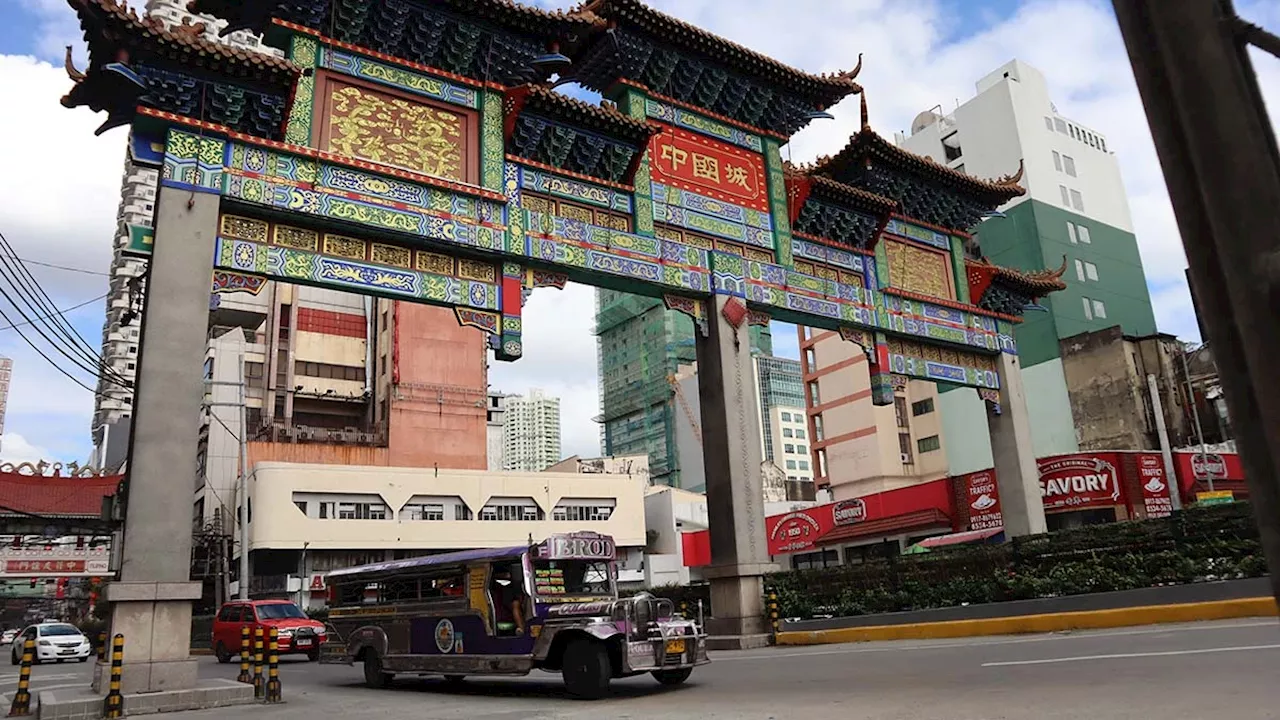 Navigating Binondo's Parking Puzzle: Your Guide to Finding a SpotBinondo, Manila's vibrant Chinatown, offers a feast for the senses with its delicious food, historical charm, and bustling atmosphere. However, finding parking in this historic district can be a challenge. This guide explores various parking options near Binondo, from dedicated car parks to street parking and hidden gems, ensuring your culinary adventure is smooth sailing.
Navigating Binondo's Parking Puzzle: Your Guide to Finding a SpotBinondo, Manila's vibrant Chinatown, offers a feast for the senses with its delicious food, historical charm, and bustling atmosphere. However, finding parking in this historic district can be a challenge. This guide explores various parking options near Binondo, from dedicated car parks to street parking and hidden gems, ensuring your culinary adventure is smooth sailing.
Read more »
 Navigating the Dual Nature of Technology: Risks and Opportunities in 2025This article explores the evolving landscape of technology, highlighting both its immense potential and the significant risks it poses. Drawing on personal experience and current events, it examines key cybersecurity threats, including generative AI misuse, ransomware attacks, data breaches, and the implications of quantum computing. The article emphasizes the need for ethical considerations, robust governance, and collaboration to ensure technology serves progress, not chaos.
Navigating the Dual Nature of Technology: Risks and Opportunities in 2025This article explores the evolving landscape of technology, highlighting both its immense potential and the significant risks it poses. Drawing on personal experience and current events, it examines key cybersecurity threats, including generative AI misuse, ransomware attacks, data breaches, and the implications of quantum computing. The article emphasizes the need for ethical considerations, robust governance, and collaboration to ensure technology serves progress, not chaos.
Read more »
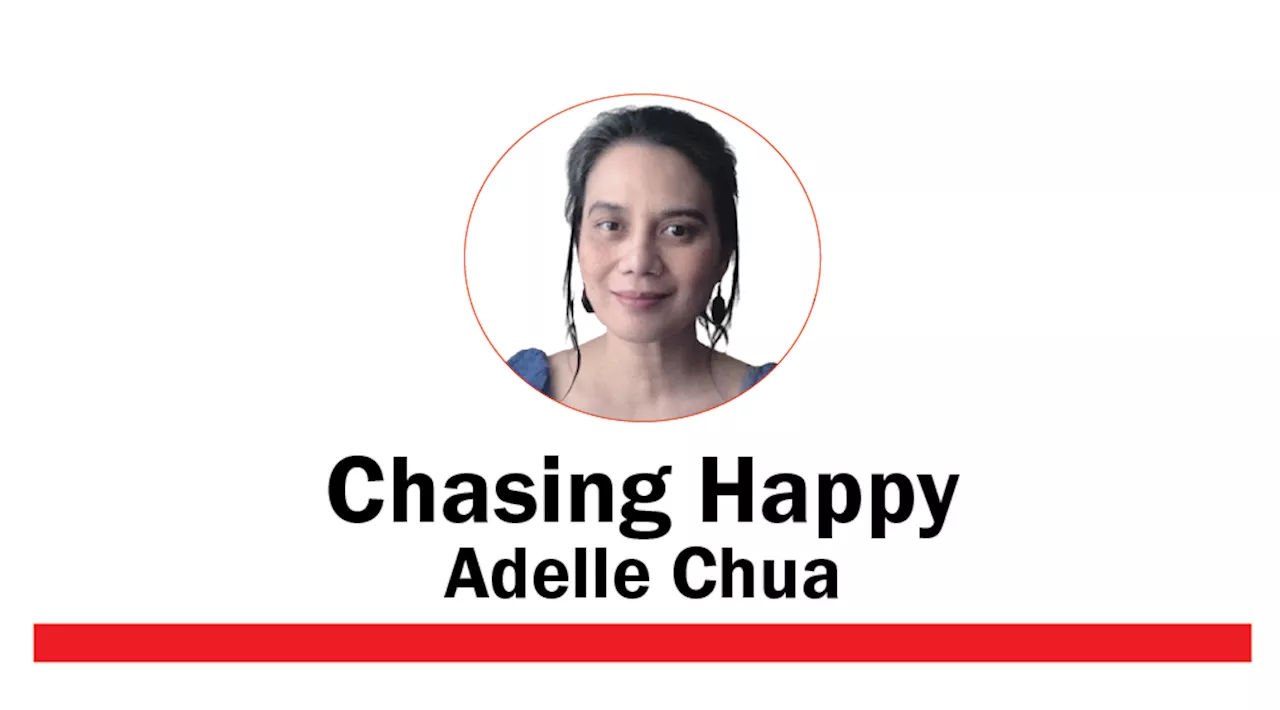 When Idols Fall: Navigating Disillusionment in the Face of Celebrity ScandalsThis article explores the complex feelings of betrayal and disillusionment that arise when beloved authors and artists are revealed to have committed wrongdoings. It examines the cases of Alice Munro and Neil Gaiman, analyzing the impact of their actions on their fans and the broader conversation about separating art from the artist.
When Idols Fall: Navigating Disillusionment in the Face of Celebrity ScandalsThis article explores the complex feelings of betrayal and disillusionment that arise when beloved authors and artists are revealed to have committed wrongdoings. It examines the cases of Alice Munro and Neil Gaiman, analyzing the impact of their actions on their fans and the broader conversation about separating art from the artist.
Read more »
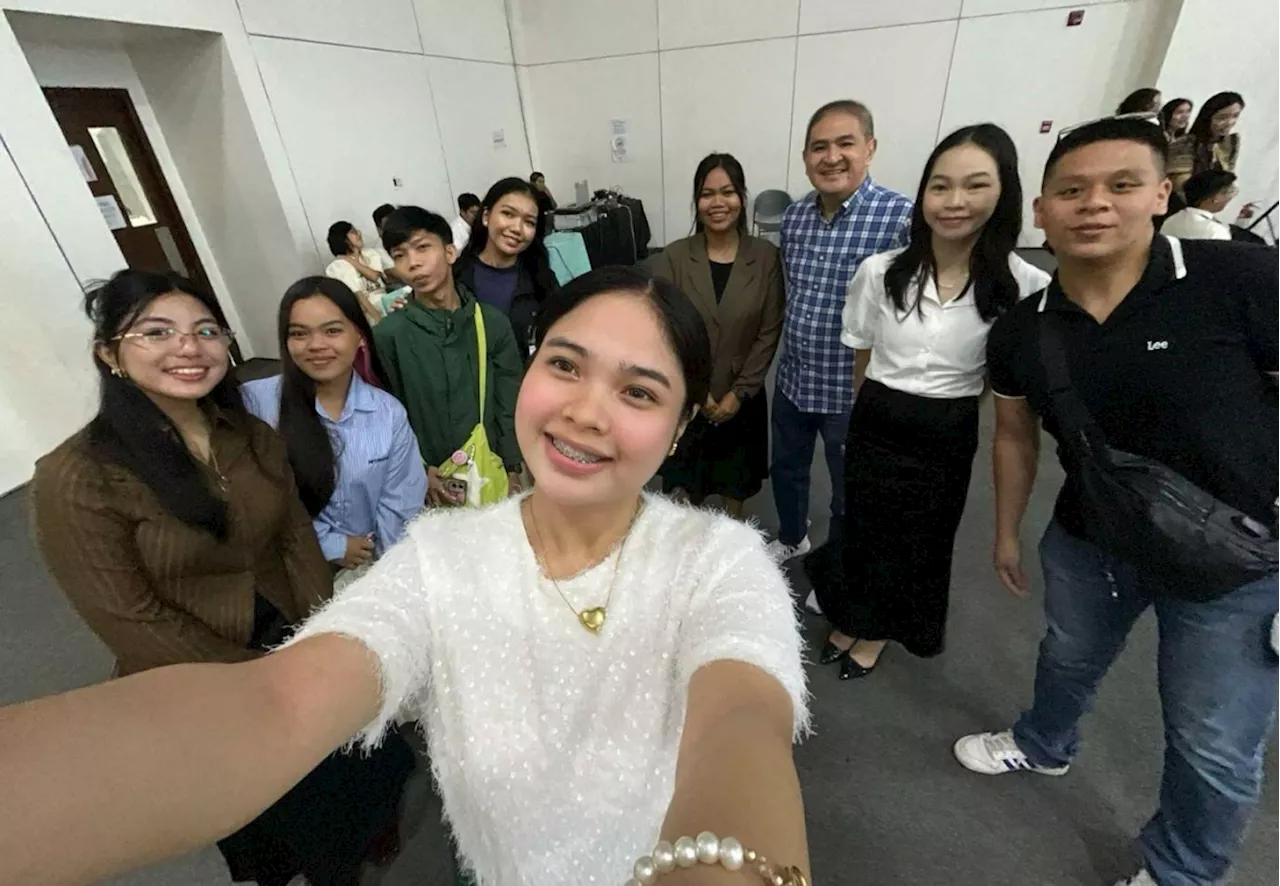 Navigating the Crossroads: Corruption and Climate Action in the PhilippinesThis article highlights the critical intersection of corruption and climate action, focusing on the Philippines. It discusses how corruption undermines climate policies and initiatives at both global and national levels, emphasizing the need for young people to be active in combating these issues.
Navigating the Crossroads: Corruption and Climate Action in the PhilippinesThis article highlights the critical intersection of corruption and climate action, focusing on the Philippines. It discusses how corruption undermines climate policies and initiatives at both global and national levels, emphasizing the need for young people to be active in combating these issues.
Read more »
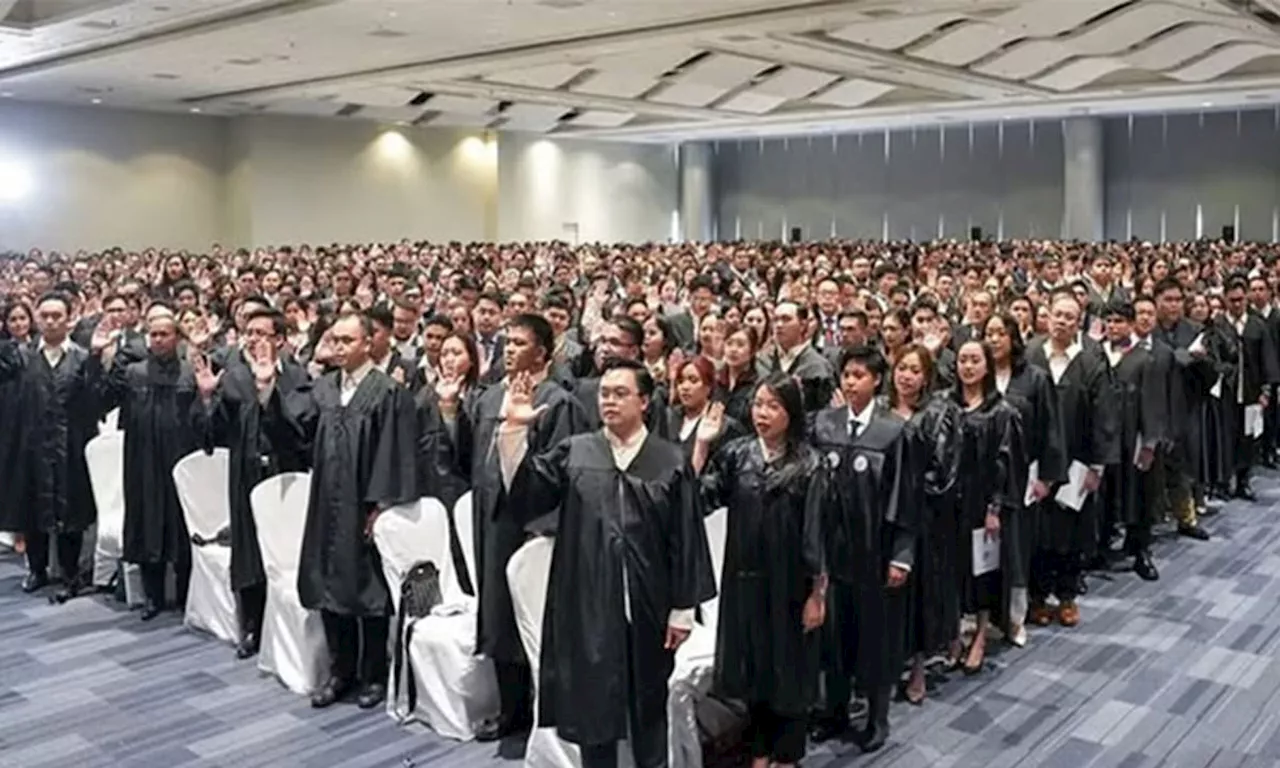 New Philippine Lawyers Inducted, Supreme Court Emphasizes Ethical ConductOver 3,900 new lawyers were inducted into the Philippine Bar on January 24, 2025, at the SMX Convention Center in Pasay City. Supreme Court justices, including Associate Justice Amy Lazaro-Javier and Associate Justice Mario Lopez, stressed the importance of ethical conduct and moral competence for new lawyers. They urged the newly sworn-in lawyers to uphold the Code of Professional Responsibility and Accountability.
New Philippine Lawyers Inducted, Supreme Court Emphasizes Ethical ConductOver 3,900 new lawyers were inducted into the Philippine Bar on January 24, 2025, at the SMX Convention Center in Pasay City. Supreme Court justices, including Associate Justice Amy Lazaro-Javier and Associate Justice Mario Lopez, stressed the importance of ethical conduct and moral competence for new lawyers. They urged the newly sworn-in lawyers to uphold the Code of Professional Responsibility and Accountability.
Read more »
